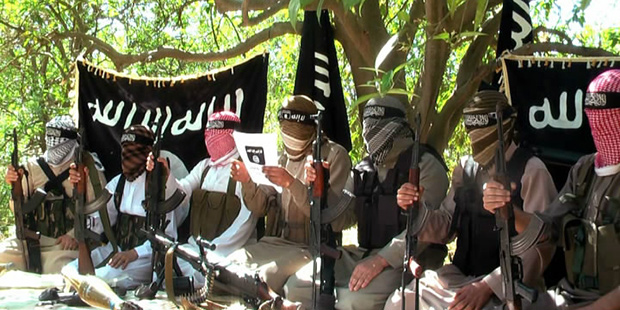The Islamic State's New Best Friend
Ansar Beit al-Maqdis pledges allegiance to the Islamic State

NEW DELHI: Jihadist group, Ansar Beit al-Maqdis (ABM), that has carried out a series of attacks on security forces in Egypt’s Sinai peninsula, has pledged allegiance to the Islamic State (IS).
The group, that had previously denied allying itself with IS, reneged on that denial this week by taking to Twitter to declare that it will “listen and obey” IS leader Abu Bakr al-Baghdadi, and called upon Muslims everywhere to pledge allegiance. "Your unity is strength, and your division is weakness.... Determine your fate, unite among yourself, and support your State,” the message added.
“After entrusting God we decided to swear allegiance to the emir of the faithful Abu Bakr al-Baghdadi, caliph of the Muslims in Syria and Iraq and in other countries,” the statement by the group said. The statement went on to ask Egyptians to rebel against "the tyrant," President Abdel Fattah el-Sisi, declaring that “we will continue to fight the army until the day of judgment.”
Ansar Beit al-Maqdis are not the only group to pledge support to the Islamic State. IS’ followers includes the city of Derna in Eastern Libya, a Jordanian Salafi group, a handful of Tehreek-i-Taliban Pakistan (TTP, or the Pakistani Taliban) leaders, a mosque in Denmark, a man in Texas, and even perhaps Boko Haram in Nigeria.
However, ABM pledge of allegiance has ramifications in the region, with Egypt being one of the United States’ closest regional allies. The group is the main group behind militant activity in the country, killing hundreds of members of Egypt’s security forces. The group was behind a recent attack that killed 31 soldiers in the Sinai last month and which prompted the government to declare a three-month state of emergency.
ABM -- literally, Supporters of the Holy House or Supporters of Jerusalem -- was founded in 2011 post the Egyptian Revolution that overthrew autocrat Hosni Mubarak. The group began attacking symbols of the Egyptian state -- most notably, the country’s security forces -- in 2013 after the overthrow of Mubarak’s successor Mohamed Morsi by the Egyptian army.
Recent attacks include the killing of 31 soldiers on October 24, a bus bombing that killed four people on February 16 that was accompanied by a warning to all tourists to leave Egypt, an attack on a police checkpoint that killed five people on January 23, amongst several other attacks.
Take a page out of IS’ propaganda-book, ABM in August this year posted a graphic video showing the execution and beheading of four Egyptians, saying that the victims had provided Israel with intelligence for an airstrike that killed three of the group’s fighters. This was the first time that the group made its decapitations public.
Meanwhile, US President Barack Obama has announced the deployment of 1500 additional troops to Iraq, saying that the move marks a “new phase” against Islamic State (IS) militants. Although deployed in a non-combat role, the additional troops will advise Iraqi and Kurdish whilst a US-led coalition continues conducting airstrikes in Iraq and Syria.
Obama’s announcement and ABM’s pledge coincide with rumours that a previous US-led airstrike critically injured IS leader Baghdadi. Iraq's Defense and Interior ministries both issued statements last week saying al-Baghdadi had been wounded in western Anbar province and the news was soon broadcast on state-run television, although no further details were provided. US officials have however, expressed skepticism about the claim. Fox News quoted Air Force Col. Pat Ryder, a spokesperson for U.S. Central Command, saying, “We have no information to corroborate press reports that (Islamic State) leader al-Baghdadi has been injured.”
A week after the rumour of Baghdadi’s death surfaced, he leader appeared on an audio recording carried on IS-run social media. “Be assured, O Muslims, for your state is good and in the best condition,” Baghdadi said, according to an English transcript of the message released together with the recording.
In the recording, Baghdadi called for attacks on Saudi Arabia, saying that the IS’ self-declared Caliphate would be expanding there and four other Arab countries. Baghdadi additionally said that the US-led campaign against the militants in Syria and Iraq -- a new phase of which US President Obama recently announced -- was failing.
"O sons of al-Haramayn...the serpent's head and the stronghold of the disease are there...draw your swords and divorce life, because there should be no security for the Saloul," Baghdadi said, using a derogatory term to refer to the leadership of Saudi Arabia. Saudi Arabia has sent thousands of troops to border areas since the IS stepped up its offensive in Iraq in June this year, with the fall of Mosul.
"We announce to you the expansion of the Islamic State to new countries, to the countries of the Haramayn, Yemen, Egypt, Libya, Algeria," Baghdadi continued. The choice of countries is interesting, as it focuses on a broad-based local support base and doesn’t include Pakistan, Afghanistan or Lebanon for instance, where there has been a pledge of assistance to the IS, albeit limited and isolated. In fact, the recording seems to refer to ABM’s pledge of allegiance -- a development that occurred after rumours of Baghdadi’s death, thereby indicating that the recording -- albeit not dated -- is recent.



